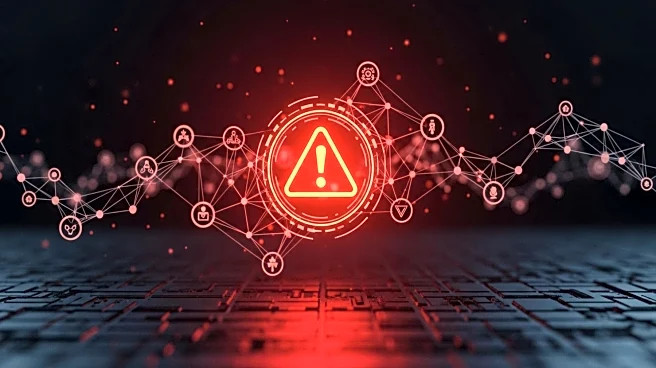What is the story about?
What's Happening?
The U.S. Department of the Treasury has imposed new sanctions targeting a network of individuals and entities that support North Korea's overseas IT worker operations. This includes a Russian national, Vitaliy Sergeyevich Andreyev, and several entities added to the Specially Designated Nationals and Blocked Persons List. These sanctions are aimed at disrupting financial flows tied to North Korea's cryptocurrency schemes, which are used to fund the regime's nuclear and missile programs. Among the sanctioned entities is Shenyang Geumpungri Network Technology Co., Ltd., a Chinese company identified as facilitating North Korean IT worker delegations. These workers use false identities to infiltrate companies in the U.S. and other countries, engaging in data theft and ransom demands.
Why It's Important?
The sanctions highlight the ongoing efforts by the U.S. to curb North Korea's ability to generate revenue through illicit means, particularly through the use of cryptocurrency. By targeting these networks, the U.S. aims to cut off a significant source of funding for North Korea's weapons programs. This move also underscores the broader geopolitical tensions involving North Korea, China, and Russia, as these countries are implicated in facilitating or turning a blind eye to such activities. The sanctions could impact businesses and financial institutions globally, as they are now prohibited from engaging in transactions with the designated entities and individuals.
What's Next?
The U.S. Treasury will continue to monitor and disrupt financial networks linked to North Korea. This includes tracking cryptocurrency addresses associated with the sanctioned entities. The sanctions may lead to increased scrutiny of financial transactions involving North Korean entities, potentially affecting international businesses and financial institutions. The U.S. may also seek further cooperation with international partners to strengthen enforcement and compliance measures.
















